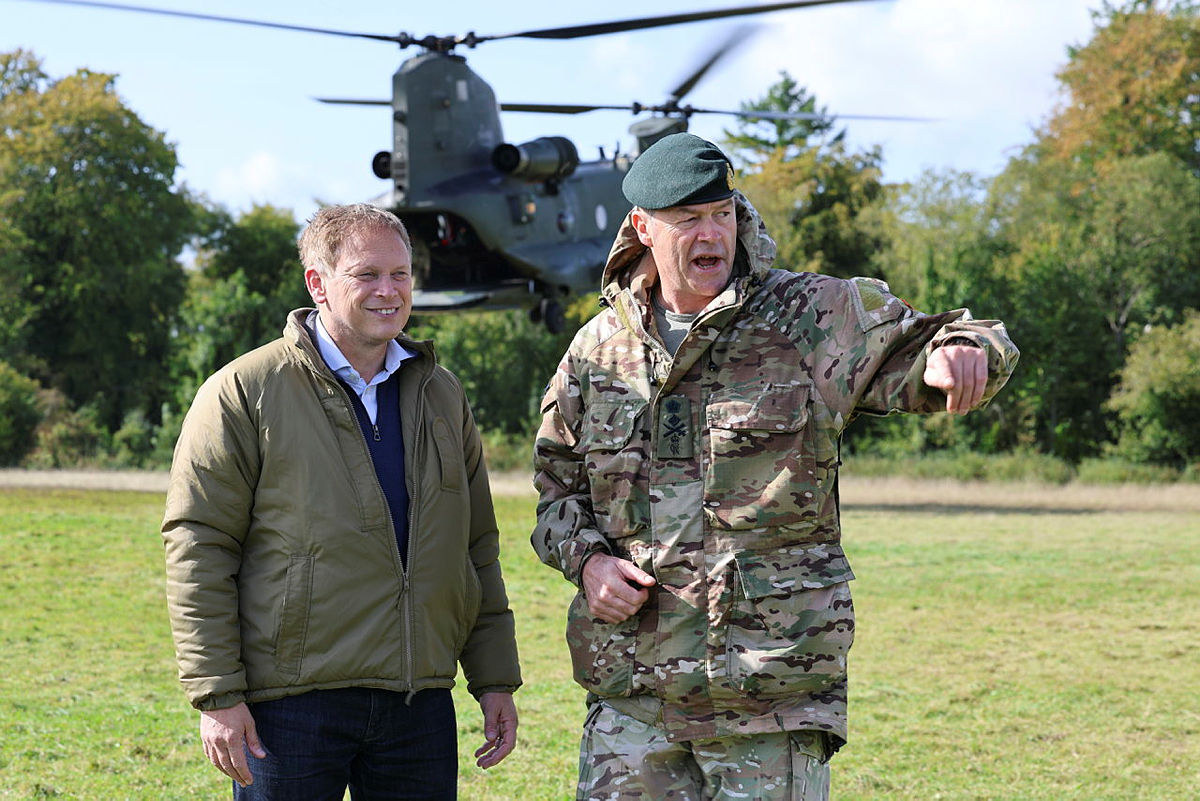Outgoing British Chief of the General Staff, General Sir Patrick Sanders, took aim at the British political establishment over the UK’s readiness in the face of a potential large-scale future war and sparked a debate over future conscription in the UK.
Sanders warned that the UK public must be prepared to take up arms in a war against Vladimir Putin’s Russia due to the small scale of the UK’s current armed forces, calling for the foundations of “national mobilisation” and claiming the UK needed to take “preparatory steps to enable placing our societies on war footing.” He highlighted the example of Sweden, which has just reintroduced a form of national service as it closes in on NATO membership.
This comes close to a call from Carlos Del Toro, the US Navy Secretary, for the UK to invest more in its navy and reinforcing the army at a time when government cuts have reduced the army to its smallest size in 300 years, following a 28% reduction in the last 12 years. Further, it comes in the same month that the Defence Secretary had to argue leading publications were incorrect amid claims that he had asked for a justification for the existence of the Royal Marines, and in the wake of the UK being unable to send an aircraft carrier to support its action in the Red Sea, leaving its forces to rely on expensive and limited bombing runs from Cyprus.
Speaking to The Mirror, Sir Anthony Glees, a security and intelligence expert at the University of Buckingham, has said Sanders is “absolutely right” that the UK should prepare for an outbreak of all-out war. Going further he stated that, “the UK government should plan to sign up volunteers now and over the next three years and the whole of the nation should prepare for conscription within six years” unless Putin is defeated.
While these comments have fanned the flames of debate over conscription in the UK it must be noted that there appears to be little appetite in the corridors of power. A spokesperson for the prime minister dismissed the comment made by Sanders, saying that there would be no return to national service, and that “hypothetical scenarios” involving possible future conflicts were “not helpful.” While the specific reference to national service might be seen as leaving the door open to a wider or alternative form of conscription, there are further comments that seem to slam it shut. The Ministry of Defence has issued a statement saying that “the British military has a proud tradition of being a voluntary force and there is absolutely no suggestion of a return to conscription.”
There is likely to be a middle ground. Professor Michael Clarke told the Sky News Daily podcast that the UK will probably have to go back to having a ‘citizen army’, but this is “not the same as conscription.” He said that “it will need to be a citizen army, but a citizen volunteer army of the sort that we’ve had in the past, and we will probably have once again in the future.”
Former UK Defence Secretary Michael Fallon also noted that “conscription to most professional soldiers…is absolute anathema,” continuing “Sooner or later, if the military can’t improve the way they recruit, then, if it comes to conflict, obviously they will have to look at other methods.” This is backed up by James Heappey, the Armed Forces Minister, who has said that the UK has long had plans for “mobilising volunteers” in the event of a new large-scale conflict, but nobody is thinking about bringing back conscription.
This would seem to settle the debate for now for the most part. Critically, in the debate on conscription that has buzzed around the UK media, we must note that Sanders himself does not support conscription, but the move towards a citizen army and a general shift in the thinking of regular citizens.
Where the original message was aimed however is important to consider. Sanders stated that “the army has a generous £44bn programme over 10 years, but that money is just 18% committed. During an electoral cycle, uncommitted money is vulnerable.” That is revealing of the motivation behind the comments and would appear to be a shot across the bows to preempt any attempts at further cuts in the military. With most polls indicating a Labour government will be taking over within the next year, could this be a comment aimed more at the Leader of the Opposition’s Office rather than 10 Downing Street?
Feature Image: Secretary of State for Defence, The Rt Hon Grant Shapps MP (left) and Chief of the General Staff, General Sir Patrick Sanders (right) c. Sept 2023 – MoD Imagery, 2024


